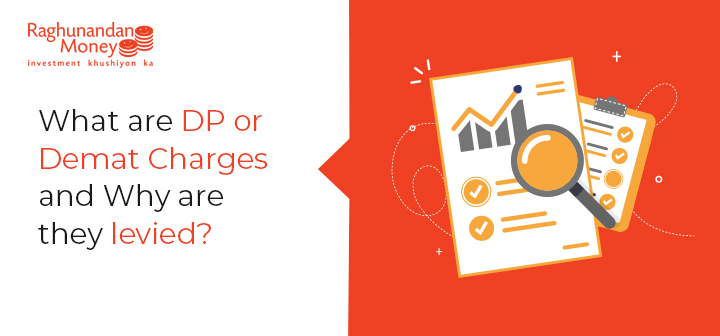

Search for an answer or browse help topics
Post Date : March 3, 2022

Introduction:
When it comes to investing in India, there are various charges and fees that investors need to be aware of, regardless of whether they make a profit or not. One such charge that applies universally to all traders and investors is the DP charge. In this blog post, we will explore what DP charges stand for, their significance, and more.
What Do DP Charges Mean?
DP charges refer to Depository Participant charges. These charges are incurred when you invest or trade through a broker and are applicable each time you sell the shares you hold. When you buy a stock, the DP charges are usually credited to your Demat account within two days. In India, Demat accounts are managed by depository institutions like the National Securities Depository Limited (NSDL) and Central Depository Services (India) Limited (CDSL).
When you sell a stock, your broker or depository participant requests the CDSL or NSDL to release the shares you intend to sell. Once the depository institution releases the stock, and it reaches your trading account for the sale transaction, a fixed amount is deducted from your account as DP charges. These charges are divided between the CDSL/NSDL and the broker with whom you hold an account.
Unlike other fees such as brokerage fees or stamp duty, DP charges are generally fixed. It means that the charge remains the same regardless of whether you sell one share or one thousand shares. Additionally, DP charges are not mentioned on the contract note provided by the broker as they are added to the ledger. It is important to note that the commonly held belief that DP charges are exempt for BTST (Buy Today Sell Tomorrow) trades is not true.
The shares you buy are credited to your account after T+2 days from the date of the buy order. Conversely, when you place a sell order, the shares are debited from your account after T+2 days. For instance, if you purchased 500 shares of ABC company on Monday and sold them on Tuesday, the shares you bought on Monday will be transferred to your Demat account on Wednesday, and the shares sold on Tuesday will be deducted from your account on Thursday. As the shares remain in your Demat account for a full day, DP charges are applicable.
Who Levies and Collects DP Charges?
In India, depository institutions such as NSDL and CDSL, as well as depository participants like RMoney, impose DP charges. If you sell a stock on the National Stock Exchange (NSE), a portion of the DP charges goes to NSDL. Similarly, if you sell a stock on the Bombay Stock Exchange (BSE), a part of the DP charges goes to CDSL. Depository participants, like RMoney, act as intermediaries between NSDL/CDSL and investors.
Apart from DP charges, investors generally incur four types of fees and charges with DPs, including Demat account opening fees, Annual Maintenance Charges (AMC), transaction fees, and custodian fees. RMoney offers free Demat and trading account opening for all eligible customers.
You can click on this link to open a free Demat and trading account in less than 5 minutes.
Why do Depository Participants Levy DP Charges?
While DP charges increase the investor’s expenditure, they are crucial for the functioning of depository participants (DPs). Before providing Demat account opening facilities to customers, DPs need to register with NSDL and CDSL and obtain a license to operate their business. This requires making significant payments to CDSL, NSDL, and SEBI.
For example, a financial institution or stockbroker aiming to become a DP must pay SEBI fees, application processing fees, training fees, a refundable security deposit, software annual maintenance charges, insurance premiums, connectivity charges, and registration fees for internet facilities. The DP charges collected from investors enable DPs to recover the upfront expenses incurred to obtain licenses from SEBI, NSDL, and CDSL.
In conclusion, DP charges are an essential aspect of trading and investing in India. Understanding these charges and their significance can help investors make informed decisions and manage their expenses effectively. By comprehending the role of depository participants and the reasons behind the levying of DP charges, investors can navigate the financial landscape more confidently.
To know about our offerings - Demat, Shares, Mutual Funds, IPOs, Insurance, Commodities and more…
Get started today to really enjoy your trading experience. Fill in your details, connect your bank account & upload your documents.

Ensure the security of your investments by updating your nominee details in your trading & demat account online. It’s quick and hassle-free!

For assistance, contact our Customer Care at 0562‑4266666 and email askus@rmoneyindia.com.

IT'S TIME TO HAVE SOME FUN!
Your family deserves this time more than we do.
Share happiness with your family today & come back soon. We will be right here.
Investment to ek bahana hai,
humein to khushiyon ko badhana hai.
E-mail
askus@rmoneyindia.com
Customer Care
+91-9568654321